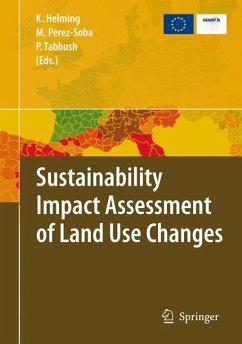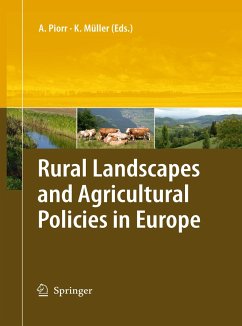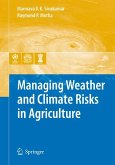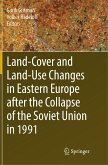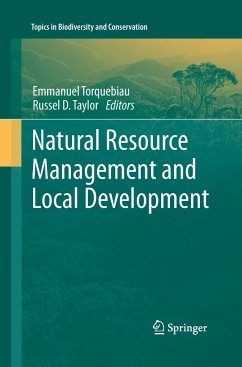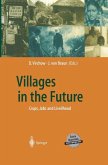The principle of multi-functionality simultaneously considers a variety of social, economic and environmental goods and services related to land use. It is thus a key to sustainable development of land and rural areas. Land use policies seek to support the economic competitiveness and sustainable development of rural areas. For efficient impact assessment, policy makers require tools for assessment of anticipated policy impacts on a wide range of sustainability issues across European regions. The European Union funded Integrated Project SENSOR develops ex-ante Sustainability Impact Assessment Tools (SIAT) to support decision making on policies related to multifunctional land use in European regions. SENSOR directly responds to the European sustainability objectives as applied to land use and rural development.
This book provides an overview on the analytical approach in SENSOR and documents preliminary results. This includes the identification of end user needs for SIAT and the development of a first SIAT prototype. Methodological frameworks for scenario development and land use modelling including indicator analysis and web-based data management were established. Surveys of European sensitive areas and a regional spatial reference framework for socio-economic and environmental assessment were drafted.
There are many reasons why strategic intelligence is required to support policy decisions. These primarily stem from the nature of today's kno- edge society with two contrasting trends. On the one hand, there is a trend of increasing human intelligence in the economic, social and political s- tems. On the other hand, there is a trend towards dissolving certainties about the problems and solutions of today's society. Clearly, more inf- mation does not necessary imply more certainties on how to act. What is more, the same facts are often interpreted in markedly different ways: the same policy relevant information can - and often does - results in confli- ing framing of a problem by different stakeholders. This is mainly due to competing assumptions, rather then because of inconsistent facts. The- fore, it is not surprising that policy-makers are calling for strategic intel- gence to support their understanding of today's challenges, including the relevant aspects of science and technology, their impact and their possible future developments. Over the last 15 years, Europe has rapidly adopted the practice of dev- oping and using Impact Assessment (IA) tools to support decision-making. Formal procedures and guidance for IA are well established within the European Commission and in most EU Member States. The adoption of IA procedures alone, however, does not guarantee that every policy domain is actually using the full potential of these assessment tools in the preparation of policies and legislation.
This book provides an overview on the analytical approach in SENSOR and documents preliminary results. This includes the identification of end user needs for SIAT and the development of a first SIAT prototype. Methodological frameworks for scenario development and land use modelling including indicator analysis and web-based data management were established. Surveys of European sensitive areas and a regional spatial reference framework for socio-economic and environmental assessment were drafted.
There are many reasons why strategic intelligence is required to support policy decisions. These primarily stem from the nature of today's kno- edge society with two contrasting trends. On the one hand, there is a trend of increasing human intelligence in the economic, social and political s- tems. On the other hand, there is a trend towards dissolving certainties about the problems and solutions of today's society. Clearly, more inf- mation does not necessary imply more certainties on how to act. What is more, the same facts are often interpreted in markedly different ways: the same policy relevant information can - and often does - results in confli- ing framing of a problem by different stakeholders. This is mainly due to competing assumptions, rather then because of inconsistent facts. The- fore, it is not surprising that policy-makers are calling for strategic intel- gence to support their understanding of today's challenges, including the relevant aspects of science and technology, their impact and their possible future developments. Over the last 15 years, Europe has rapidly adopted the practice of dev- oping and using Impact Assessment (IA) tools to support decision-making. Formal procedures and guidance for IA are well established within the European Commission and in most EU Member States. The adoption of IA procedures alone, however, does not guarantee that every policy domain is actually using the full potential of these assessment tools in the preparation of policies and legislation.

